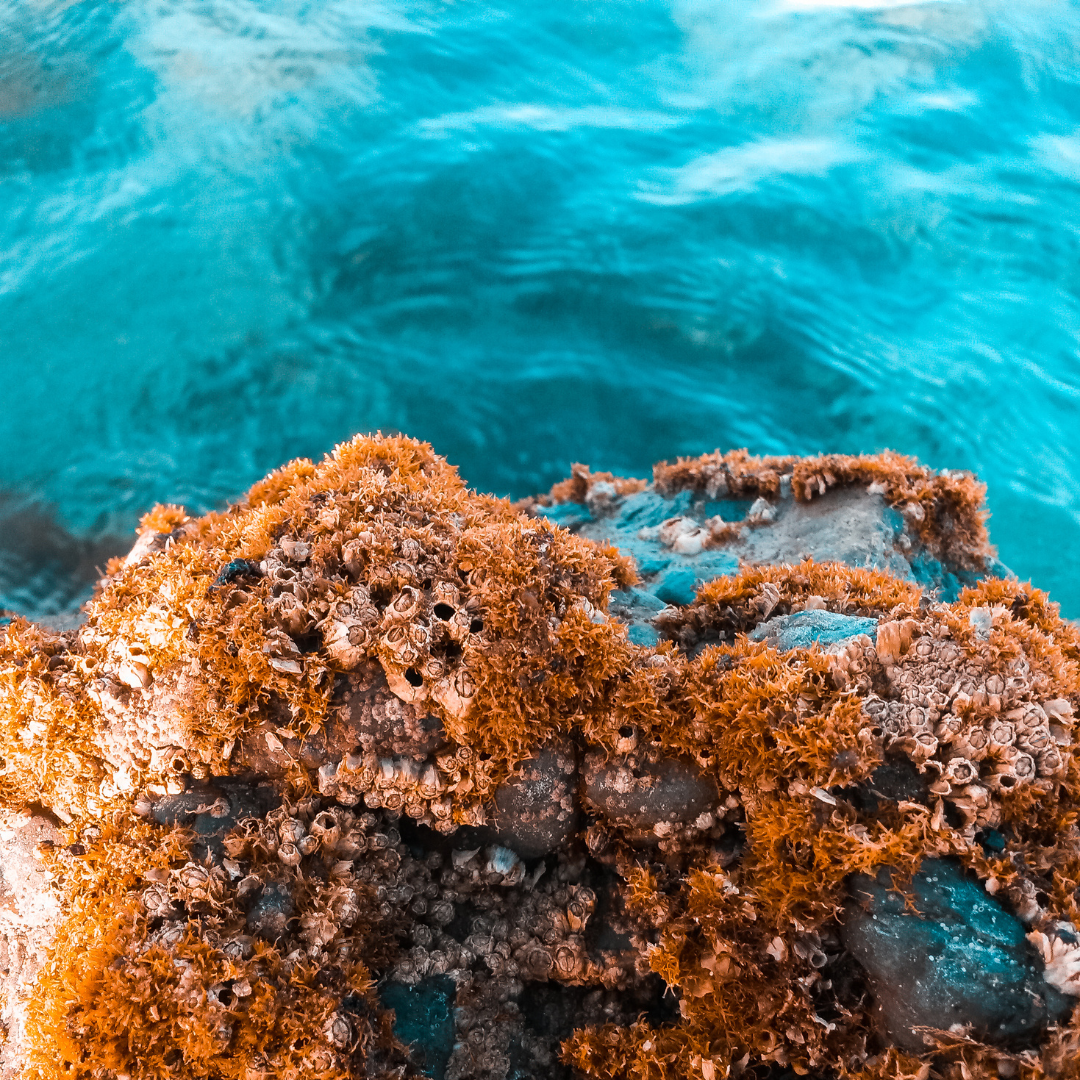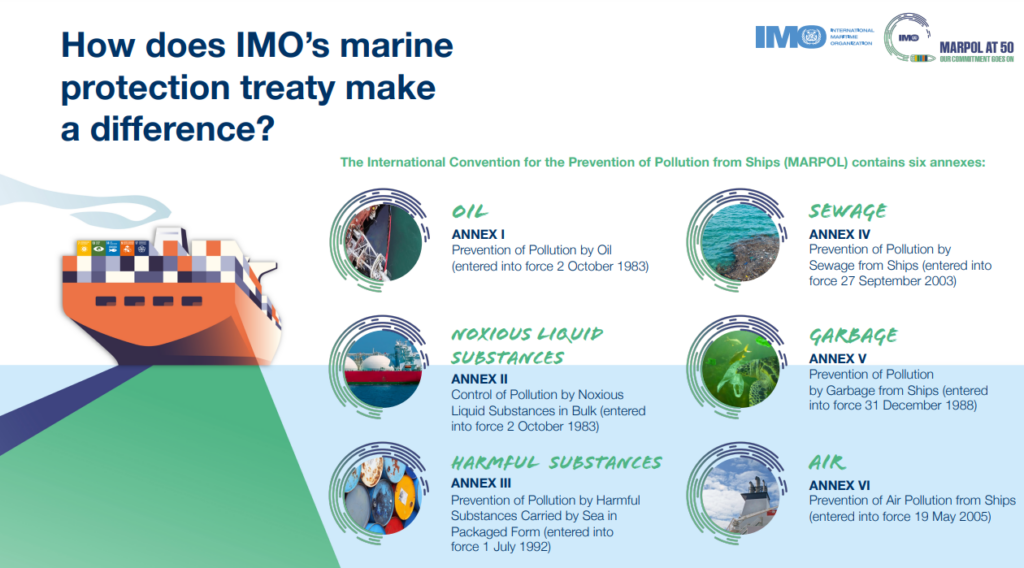By Paul Berrill
MARPOL, the International Convention for the Prevention of Pollution from Ships, turns 50 this year and it feels right to celebrate its golden anniversary with the International Maritime Organization (IMO) on World Maritime Day, September 28th.
Signatories to the wide-ranging legislation that has evolved with changing times now control about 99% of the world fleet. And it is no exaggeration to say it has been one of the most successful regulations in improving shipping’s environmental practices and reputation.
Pollution from ships, particularly oil spills, have been significantly reduced despite the difficulties of policing an international industry that operates most of the time over the horizon and out of sight.

The system of flag and state controls that has developed is not perfect but shows what can be achieved when stakeholders work together for a common aim.
But the world’s oceans are under greater threat from a variety of sources that involve shipping today than at any time in the past, even if they are not its sole responsibility.
Ocean temperatures are a major factor, whose importance in regulating the climate are becoming more and more apparent as seas warm up at alarming rates.
Marine heatwaves are depleting fish stocks, disrupting marine life patterns and killing corals as well as being recognised as a major cause of worsening tropical storms and hurricanes at sea and land.
The togetherness achieved in developing MARPOL remains the guiding principle for the IMO as it works on putting into practice methods to achieve its aims to cut the 3% of global carbon emissions that shipping pumps out.
The amount of plastic pollution in the seas also needs to be drastically reduced, and even if the vast majority of that is washed out from land, a maritime input will be essential to clearance efforts.
The impact of noise from ship propulsion is also increasingly recognised as a pollutant that has damaging effects on marine wildlife. The Convention of Safety of Life at Sea (SOLAS) has been amended to reflect this but more needs to be done and many of the issues are intricately interlinked.
As World Maritime Day celebrates MARPOL at 50, maintaining the consensus on which its successes have been built is critical for sustainability in the oceans, and more important than ever for shipping and international trade.

For more insights or to meet the JLA Media team at an upcoming event, get in touch or follow us on LinkedIn.
